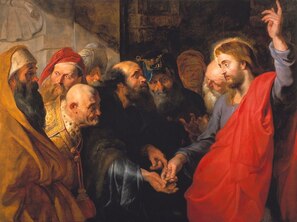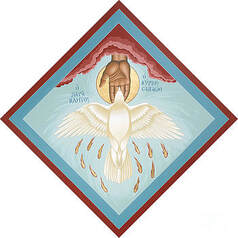 Growing older... I am all in. Growing older... I am all in. There are all sorts of jokes and memes about forgetting things more easily as we grow older. I saw a comic strip the other day which depicted someone on the top of a high mountain who quipped, “I hate it when I go somewhere and can’t remember why I went there in the first place.”* It was funny: those of us who are older will poke fun at ourselves about how we entered a room and forgot why we went there, or that we were searching for a phone that was in our pocket all along, (or worse, in our hand.) Jokes aside, I recently read an article that did not sit right with me at all. It was about measuring cognitive ability based on how older people dealt with money. The article highlighted the findings of an experiment in which they took a number of older people and created an artificial scenario that tested what they would do when they met strangers who presented a need. The subjects were 'allotted' a theoretical amount of money to keep or give. The testers connected those who gave more with having more cognitive decline than those who gave less or none at all. I guess that makes all of us (young or old) who live by the gospels, quite senile! If that is the case, count me in.  "... [repay] to God what belongs to God" "... [repay] to God what belongs to God" Psychology is a wonderful gift when a person desires help growing emotionally, is in need of healing, or has a particular mental health issue. But like all things, when something is taken out of context or when an issue is taken to the extreme, anything can become misleading and disturbing. Reading articles like this reinforces the wisdom of taking what we read or hear and keeping it in perspective using common sense, consistent with what Jesus taught about discerning right usage. For example, He did not say money was evil, but indicated it was what we do with it that makes it good or bad, such as when He told those who questioned Him, “Repay to Caesar what belongs to Caesar, but to God what belongs to God.” (Mark 12:17) Therefore, aside from avoiding the Pharisees attempt at trying to trap Him, Jesus was actually teaching about right use of what we have. Notice the wording: Jesus used the word “repay.” The Pharisees were asking about the Law and Jesus’ reply was about love. In our gratitude we ‘repay’ (or respond to) God with loving actions directed to everyone, but especially to those in greatest need. We are to give to the poor, but using discernment, we should decide how much we can give; impoverishing ourselves when we have children to feed or have other obligations would not be what God wants. We are to nurture a generous heart, but without taking things out of context and to the extreme.**  To discern is to pray To discern is to pray The one thing Jesus does want us to be extravagant with is our love, but even then we always need to discern what the truly loving thing to do is. That is, we must discern the greater good which will bring us closer to God and also does the greatest amount of good for the one to whom we minister without jeopardizing those to whom we are obligated, including ourselves. In order to live this way we must have a healthy prayer life. To discern is to pray, and in fact, it means we must pray constantly. To get a sense of the movement of the Holy Spirit we must dialogue with Him, to ask specifically, and then to listen with our heart and soul. And the best way to do that is to have an intimate relationship with God. If we desire a discerning heart we must spend time in prayer so that we can learn the way God works within our particular relationship and in how He calls us. In prayer we learn to recognize His presence and indeed, His voice. Like the disciples in Emmaus, unless we are listening to what is happening within our hearts, we will totally miss that they are burning within us. As we learn to recognize God's presence, and as we grow in love, our generosity will expand, our mercy will multiply, (especially in forgiving others), and we will grow in holiness.  "What you do for the least ones, you do for me." "What you do for the least ones, you do for me." There is nothing of a cognitive decline in being generous with a poor stranger. It is what we are called to do as Christians and what we do in response to our love for God. When we offer our time, talent, and treasure, we give to Christ present in our least brothers and sisters: “What you do for them, you do for me.” (Paraphrase of Matthew 25:40) Jesus taught us to give to those in need, whether it is food and drink, clothing, offering comfort through a visit to the sick or the imprisoned, or simply spending time listening and praying with someone. If the world laughs at us for loving with an open hand, then let it. And if they want to say we are losing cognitive ability for being generous… well, let them. I would rather be deemed a little impaired for being as Christ to someone, then to be considered ‘all together’ for being selfish or neglectful. Don’t get me wrong, there are times to give and times to withhold, so let’s not think that anyone is selfish when they do not give monetarily or otherwise. But the fact remains, that if we are appropriately generous in word and deed to our brothers and sisters, we will find a clarity like nothing else. This clarity is indeed what love is.  May we respond with generous hearts! May we respond with generous hearts! May we utilize the gift of discernment we were given at our Confirmation! May we grow in gratitude to God and respond with generous hearts! And in this month of the Sacred Heart, may we learn how to respond in love as Jesus would have us do! Let us meet in the Sacred Heart of Jesus! Peace! ©Michele L. Catanese *The comic mentioned is called Macanudo by Liniers. His comic strip is one of my favorites. You can find the particular strip I referred to at https://comicskingdom.com/Macanudo/2022-06-19 More about the Argentinian artist, Liniers, and his comic strip can be found at https://comicskingdom.com/Macanudo/about ** Speaking of context: Some may be thinking, “But what about the widow who gave her two cents in Luke 21:1-4? Does it not say Jesus praised her for giving her entire livelihood?” Yes, He did say this, but again we have to put it into context. Jesus was using hyperbole, a Jewish teaching method of exaggerating a point so as to make it clear. In this case, Jesus was pointing out the hypocrisy of the Pharisees who were pretentious and haughty, making a show of their giving, as opposed to the widow who was giving in obscurity and humility. This teaching was about humility and not about money, as such. Images: 1. My photo, birthday cake. 2. Painting, Caesar's Coin by Peter Paul Rubens, (1612-14). (Public Domain) 3. Image, The Holy Spirit The Lord the Giver of Life The Paraclete Sender of Peace by Fr. William Hart McNichols. You can find this image and if you wish, purchase a copy in one of many mediums at fineartamerica.com/featured/the-holy-spirit-the-lord-the-giver-of-life-the-paraclete-sender-of-peace-093-william-hart-mcnichols.html 4. My photo of a painting of St. Benedict Joseph Labre from Santa Maria ai Monti in Rome, Italy. This painting hangs by St. Benedict Joseph's tomb in Santa Maria ai Monti. He died on the steps of this church. He was a pilgrim (beggar) who gave everything given to him to those poorer than himself. 5. My photo of some stained glass in the Basilica of St. John the Baptist in Savannah, Georgia. Note: In compliance with GDPR rules, I wish to make it clear that I do not gather any information on any of my readers at any time. Comments are closed.
|
Heart Speaks to Heart
|

 RSS Feed
RSS Feed

